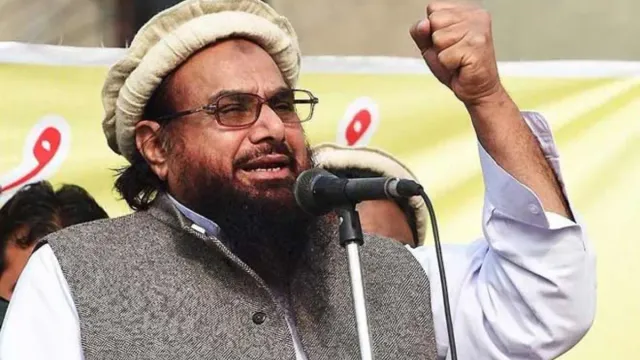- By Abhishek Sheoran
- Wed, 23 Apr 2025 04:09 PM (IST)
- Source:JND
The entire nation was left in shock after a deadly terrorist attack unfolded in Jammu and Kashmir’s Pahalgam on Tuesday. Armed militants opened indiscriminate fire on a group of tourists, resulting in the tragic loss of 26 lives. The Resistance Front (TRF), a proxy of the Pakistan-based terror organisation Lashkar-e-Taiba (LeT), reportedly claimed responsibility for the brutal assault.
The TRF, which was outlawed by the Indian government last year, has been actively involved in radicalising youth through online platforms to serve its extremist objectives. The group emerged in 2019 following the abrogation of Article 370, which altered the special status of Jammu and Kashmir.
In a statement following the attack, the group said, "Over 85,000 domiciles have been granted to non-locals, paving the way for a demographic shift in Indian-occupied Jammu & Kashmir (IIOJK). These non-locals come under the guise of tourists, acquire domiciles, and then behave as if they possess the land. As a result, violence will be directed towards those who attempt to settle unlawfully."
Media reports have indicated that Saifullah Kasuri, also known by the alias Khalid, is suspected to be a key figure behind this heinous attack, the deadliest targeted killing of civilians in the Union Territory in recent times. Kasuri is believed to be a top commander within LeT and a close associate of Hafiz Saeed, the founder of the terrorist organisation.
This development points toward Hafiz Saeed’s continued involvement in orchestrating major terror operations against India. Saeed has previously been linked to several high-profile attacks on Indian soil, and this latest incident underscores his ongoing attempts to promote terrorism in the region.
Hafiz Saeed’s Involvement In Terror Attacks In India
Hafiz Saeed, the founder of the banned terrorist organisation Lashkar-e-Taiba, has been linked to several major terrorist attacks in India.
One of the earliest incidents connected to him was the 2001 attack on the Indian Parliament. This deadly assault was carried out by five operatives of Jaish-e-Mohammed, another Pakistan-based terrorist group. The attack resulted in the deaths of six Delhi Police personnel, two members of the Parliament Security Service, and a gardener. Indian authorities also accused Lashkar-e-Taiba of its involvement in the attack. Following strong diplomatic pressure from India, Pakistani authorities took Hafiz Saeed into custody and placed him under house arrest.
Further evidence emerged linking Saeed to the 2006 Mumbai train bombings. On July 11, 2006, seven coordinated bomb blasts ripped through commuter trains on Mumbai’s Western Railway line. These bombs, hidden in pressure cookers, exploded over an 11-minute span during the busy evening rush hour. The attacks claimed 209 lives and left more than 700 injured. Investigations pointed to Lashkar-e-Taiba’s involvement, and credible leads suggested Saeed’s role in planning or facilitating the attacks.
Saeed's most notorious connection to terrorism came with the 2008 Mumbai attacks, also known as 26/11. Ten heavily armed terrorists carried out a coordinated series of shootings and bombings across multiple locations in Mumbai. Targets included the Chhatrapati Shivaji railway station, the popular Leopold Café, two luxury hotels (Taj Mahal Palace and Oberoi Trident), a Jewish community center (Chabad House), and other sites. The attackers, believed to be trained and directed by Lashkar-e-Taiba operatives, killed 166 people and injured hundreds more. Hafiz Saeed was widely recognised as the chief architect of this operation, and his involvement has been highlighted in various international investigations.
Despite repeated calls for accountability, Hafiz Saeed has often evaded stringent legal consequences, though he has faced periodic arrests and house detentions in Pakistan under international pressure.

